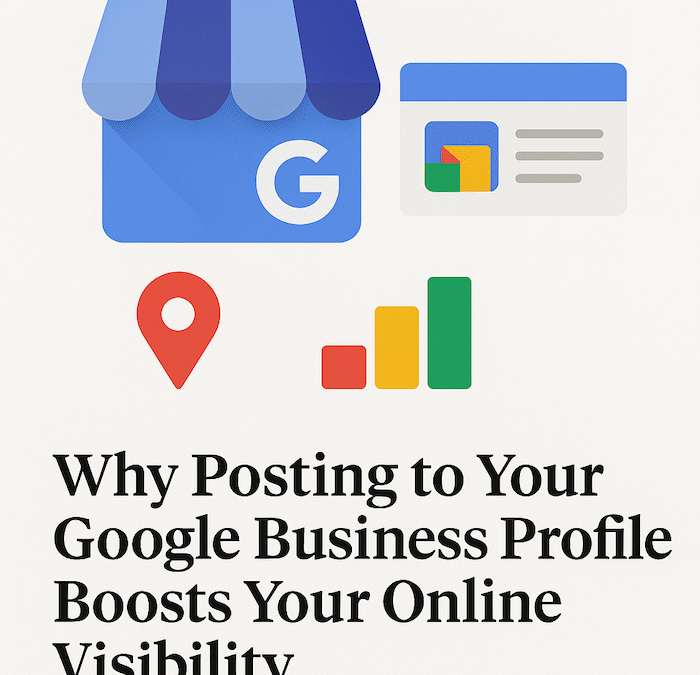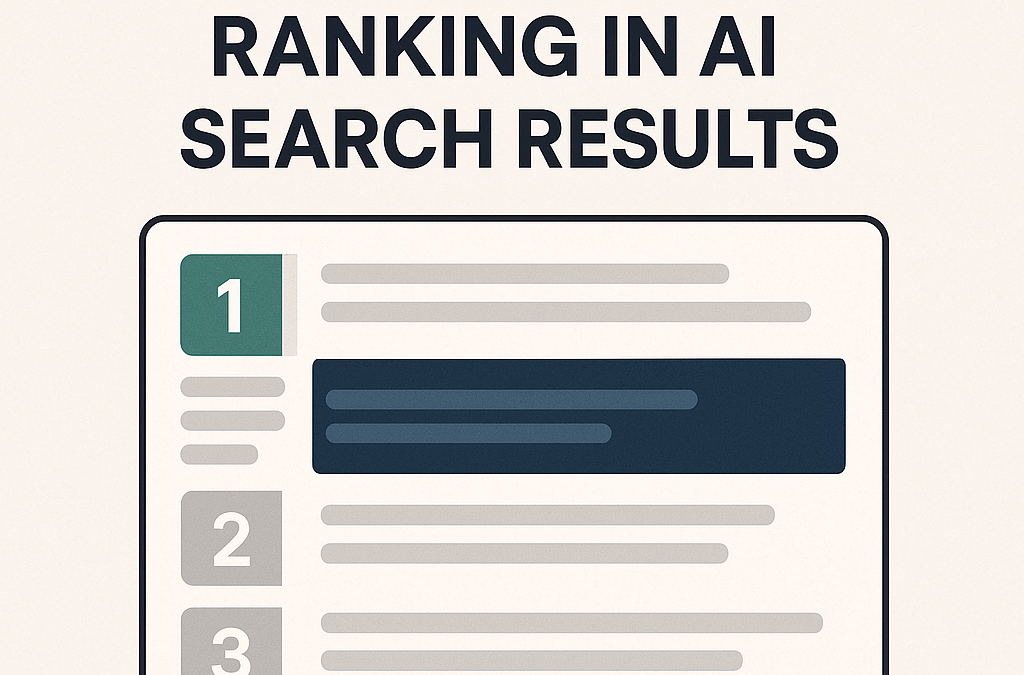When it comes to digital marketing, staying ahead means continuously adapting to new technologies and strategies. One of the latest advancements reshaping search visibility is Generative Engine Optimization (GEO). Unlike Search Engine Optimization (SEO), which focuses on ranking in conventional search engine results, GEO is specifically designed to enhance content visibility within AI-driven search platforms—systems that generate synthesized responses instead of simply listing links.
This blog post explores the fundamentals of GEO, how it differs from traditional SEO, the role of generative AI in search, and the best strategies to optimize your website for AI-generated results. Whether you’re a marketer, business owner, or content creator, understanding and implementing GEO can give you a competitive edge in the age of AI-powered search.
Table of Contents
What is Generative Engine Optimization (GEO)?
Differences Between SEO and GEO
The Role of Generative AI in Search
Key AI Platforms: ChatGPT, DeepSeek, and Gemini
Strategies to Rank in Generative AI Results
Content Quality and Length Considerations
Frequently Asked Questions (FAQs)
What is Generative Engine Optimization (GEO)?
Generative Engine Optimization (GEO) is the practice of optimizing digital content to enhance its visibility and relevance within AI-driven search platforms. Unlike traditional search engines that list links based on keyword relevance, generative AI platforms synthesize information from multiple sources to generate comprehensive responses to user queries. GEO focuses on ensuring that your content is effectively utilized by these AI systems to provide accurate and relevant answers.
Optimizing for Google’s AI Overviews
Google’s AI Overviews (formerly known as Search Generative Experience) generate summarized responses using AI instead of just displaying traditional search results. To optimize for this:
- A travel website providing destination guides can structure content with clear headings, bullet points, and authoritative sources to increase the chances of being referenced in AI-generated summaries.
- For example, if someone searches “best time to visit Paris”, Google’s AI might pull a concise, well-structured answer from a blog that clearly outlines seasonal weather, tourist traffic, and local events.
AI-Powered Chat Assistants Like ChatGPT & Gemini
AI chatbots like ChatGPT, DeepSeek, and Gemini generate responses using publicly available data and structured website content.
- A financial advisory firm looking to appear in AI-generated answers can publish expert-driven, well-researched articles explaining concepts like “how to save for retirement” with trusted sources, FAQs, and clear breakdowns.
- When users ask “What are the best retirement savings strategies?”, an AI model may cite or summarize the firm’s blog post, increasing exposure.
By structuring content for clarity, depth, and authority, websites can improve their chances of being featured in AI-generated search results.
Differences Between SEO and GEO
While both SEO and GEO aim to increase content visibility, they operate differently:
- SEO (Search Engine Optimization): Involves optimizing content to rank higher in traditional search engine results pages (SERPs) through the use of keywords, meta tags, backlinks, and other strategies.
- GEO (Generative Engine Optimization): Focuses on optimizing content for AI-driven platforms that generate synthesized responses, emphasizing clarity, context, and authority to ensure content is accurately represented in AI outputs.
The Role of Generative AI in Search
Generative AI in search utilizes advanced algorithms to understand user intent and generate detailed, context-rich responses. Platforms like Google’s AI Overviews aim to provide users with synthesized information, reducing the need to sift through multiple links. This approach enhances the user experience by delivering concise and relevant information directly in the search interface.
Key AI Platforms: ChatGPT, DeepSeek, and Gemini
As AI-driven search evolves, several powerful platforms are leading the way in providing synthesized responses to user queries. These AI models are shaping how information is retrieved, processed, and presented:
ChatGPT
Developed by OpenAI, ChatGPT is a conversational AI that generates detailed responses and engages users in interactive dialogue. It is widely used for information retrieval, research assistance, and content generation. Unlike traditional search engines, ChatGPT doesn’t return a list of links but rather provides well-structured, natural language responses based on its trained data. Many businesses and marketers optimize their content so that AI models like ChatGPT can reference and summarize their insights in user queries.
DeepSeek
DeepSeek is an emerging AI-powered search platform with advanced deep learning capabilities. It is designed to understand complex and nuanced queries, making it particularly effective in technical fields, research, and problem-solving scenarios. By analyzing context, intent, and relationships between data points, DeepSeek aims to deliver precise and contextual responses beyond simple keyword matching. This platform is gaining attention for its ability to process intricate questions that require multi-layered reasoning and synthesis.
Gemini
Gemini is Google’s generative AI-powered search enhancement, designed to improve traditional search by integrating AI-generated summaries directly into search results. Instead of displaying a standard list of blue links, Gemini provides AI-driven insights, synthesized answers, and contextual understanding within Google’s search experience. Businesses aiming to optimize for Google’s AI Overviews should focus on content clarity, structured data, and authoritative sources to improve their chances of being referenced in AI-generated summaries.
Strategies to Rank in Generative AI Results
To optimize your website for generative AI platforms:
Create High-Quality Content
Create content that is not only informative, accurate, and valuable but also well-structured and engaging for readers. AI platforms prioritize clear, comprehensive, and authoritative information, meaning your content should address user queries thoroughly while maintaining concise, easy-to-read formatting.
To enhance visibility in AI-generated search results:
- Use factual, well-researched data backed by credible sources.
- Structure content with headings, bullet points, and summaries to make it easier for AI to extract key points.
- Address user intent directly, ensuring your content answers common questions in a natural, conversational tone.
- Include FAQs, expert insights, and supporting statistics to reinforce credibility and depth.
By focusing on high-quality, authoritative content, your website has a better chance of being featured in AI-generated search responses.
Ensure Contextual Relevance
Organize your content in a logical, well-structured manner to ensure AI can easily extract and interpret key information. AI-driven search platforms prioritize clarity, depth, and relevance, so structuring your content properly increases the likelihood of being referenced in AI-generated responses.
To achieve this:
- Use clear headings and subheadings that align with common search queries. This helps AI categorize your content effectively.
- Break down complex topics into digestible sections, using bullet points, numbered lists, and short paragraphs for better readability.
- Include structured data and schema markup where possible, as AI models rely on well-organized metadata to understand and present information accurately.
- Provide direct answers to frequently asked questions (FAQs) to improve the chances of your content being featured in AI-generated summaries.
- Ensure contextual relevance by thoroughly covering a topic while maintaining a natural flow of information, avoiding fluff or redundant content.
By structuring your content with AI in mind, you increase the chances of your information being accurately referenced in AI-generated search results.
Establish Authority
Establishing credibility is essential for ranking in AI-driven search results, as generative AI platforms prioritize trustworthy, authoritative content. To ensure your content is recognized as a reliable source, focus on the following:
- Use accurate, well-researched information from reputable sources. Fact-check your content and avoid misinformation.
- Cite authoritative references such as academic studies, industry reports, or expert opinions. Linking to trusted sources helps build legitimacy.
- Demonstrate expertise by offering in-depth insights, original analysis, and real-world examples that showcase your knowledge.
- Highlight author credentials where applicable. If you or your contributors have industry experience, certifications, or relevant expertise, mention it.
- Follow Google’s E-E-A-T (Experience, Expertise, Authoritativeness, Trustworthiness) guidelines to improve content quality and ensure AI-driven search engines recognize your authority.
- Include case studies, testimonials, or expert quotes to reinforce credibility and add real-world validation to your content.
By consistently producing accurate, well-supported, and expertly crafted content, your site can gain greater recognition in AI-generated responses, boosting visibility and user trust.
Optimize for Clarity
Use simple, direct language and well-organized formatting to help AI accurately interpret and extract key information.
- Avoid jargon and overly complex sentences. Keep explanations concise and easy to understand.
- Use headings, subheadings, and bullet points to break content into clear sections.
- Write in a natural, conversational tone that aligns with how users ask questions.
- Ensure logical flow, presenting information in a structured sequence from broad concepts to detailed insights.
- Use short paragraphs to improve readability for both AI and human users.
Well-structured, clear content increases the chances of AI recognizing and incorporating your information into generative search results.
Content Quality and Length Considerations
While traditional SEO often emphasizes keyword density, backlinks, and content length as ranking factors, Generative Engine Optimization (GEO) shifts the focus to content quality, depth, and contextual relevance. AI-driven search engines do not rely on keyword stuffing or lengthy content but instead prioritize well-structured, informative, and authoritative answers that directly address user queries.
Rather than focusing on a specific word count, GEO content should be as long as necessary to fully cover a topic while remaining concise and digestible. AI models prefer clear, well-organized insights over fluff, so structuring your content with direct answers, FAQs, and supporting evidence enhances its ability to be referenced in AI-generated responses.
By balancing conciseness with depth, your content becomes more valuable and easily extractable, increasing the likelihood of AI platforms surfacing your information in search results.
Expert Insights on GEO
Industry experts emphasize the need to adapt to AI-driven search dynamics. As Sam Altman, co-founder and CEO of OpenAI, stated, “Right now, people talk about being an AI company… But no software company says they’re a mobile company now because it’d be unthinkable to not have a mobile app. And it’ll be unthinkable not to have intelligence integrated into every product and service.”
This highlights the shift towards integrating AI into products and services, underscoring the importance of focusing on content depth and authority to meet evolving user expectations.
Future Predictions for GEO
As AI technology advances, generative AI will play an even greater role in shaping search results and user interactions. Search engines will increasingly rely on AI-generated summaries rather than traditional link-based rankings, making Generative Engine Optimization (GEO) a key strategy for businesses aiming to maintain visibility.
Companies that proactively adjust their content strategies—focusing on clarity, authority, and structured information—will be better positioned to appear in AI-generated responses, driving more engagement and credibility.
To stay competitive, businesses must continuously monitor AI developments, refine their content to align with evolving AI preferences, and embrace a data-driven approach to ensure their information is effectively surfaced by generative search models.
Final Thoughts
Generative Engine Optimization (GEO) represents a fundamental shift in how content is discovered and consumed in the age of AI-driven search. Unlike traditional SEO, which prioritizes ranking on search engine results pages (SERPs), GEO focuses on ensuring AI platforms recognize and utilize your content effectively.
As AI continues to evolve, businesses and content creators must adapt by focusing on high-quality, authoritative, and well-structured content. The future of search is no longer just about keywords and backlinks—it’s about context, credibility, and clarity.
By embracing GEO today, you can position your content for success in an AI-driven digital landscape.
GEO FAQs
What is Generative Engine Optimization (GEO)?
GEO is the practice of optimizing content to enhance its visibility within AI-driven search platforms that generate synthesized responses to user queries.
How does GEO differ from traditional SEO?
While SEO focuses on improving rankings in traditional search engine results through keywords and backlinks, GEO emphasizes optimizing content for AI platforms that provide context-rich, synthesized answers.
Why is GEO important for my website?
As AI-driven search becomes more prevalent, optimizing for GEO ensures your content is effectively utilized by these platforms, enhancing visibility and user engagement.
How can I optimize my content for generative AI platforms?
Focus on creating high-quality, contextually relevant content, establish authority through accurate information, and ensure clarity in your writing to facilitate AI interpretation.
Do content length and keywords still matter in GEO?
While keywords and content length are still important, GEO prioritizes clarity, depth, and authority. AI platforms prefer well-structured, informative content that thoroughly answers queries rather than just keyword stuffing.
How does Google’s generative AI impact search rankings?
Google’s AI Overviews and other generative search features extract and synthesize content from various sources. Websites with well-organized, authoritative, and context-rich content have a higher chance of being featured in AI-generated responses.
What role do AI tools like ChatGPT, DeepSeek, and Gemini play in search?
These AI tools process and generate content based on user queries, pulling from indexed websites and trusted sources. Ensuring your content is clear, structured, and authoritative helps AI tools extract and present your information accurately.
How can I track my performance in AI-driven search results?
Currently, tracking GEO performance is challenging since AI-generated responses don’t always link back to sources. However, monitoring organic traffic, engagement rates, and mentions in AI-generated results can offer insights.
Will traditional SEO become obsolete with GEO?
No, traditional SEO will still be relevant, especially for ranking in standard search results. However, GEO is an additional optimization strategy to ensure your content is effectively used in AI-generated responses.
What’s the best way to prepare for the future of GEO?
Stay updated on AI-driven search developments, focus on producing high-quality content, and ensure your site demonstrates expertise, authority, and trustworthiness (E-E-A-T). Adapting early to GEO best practices will keep your content visible in an evolving search landscape.









